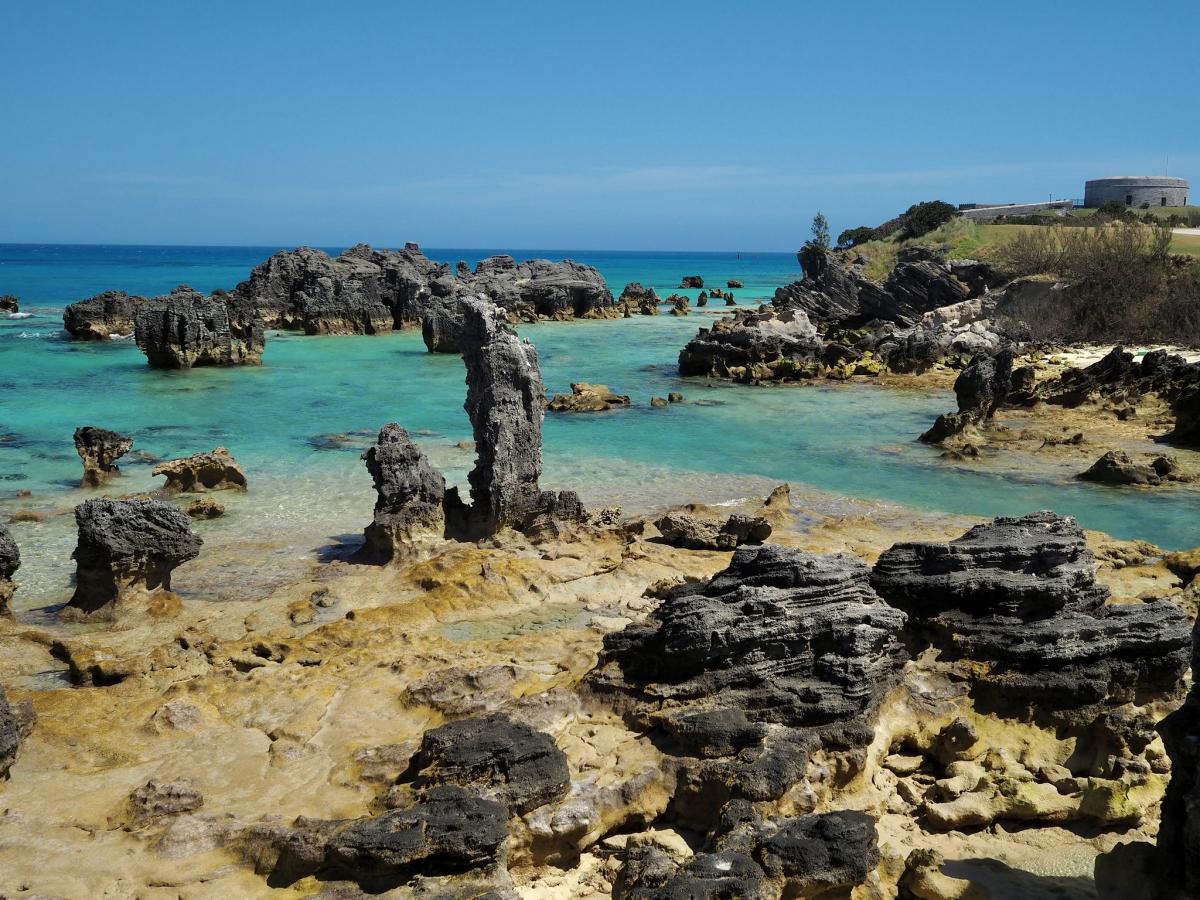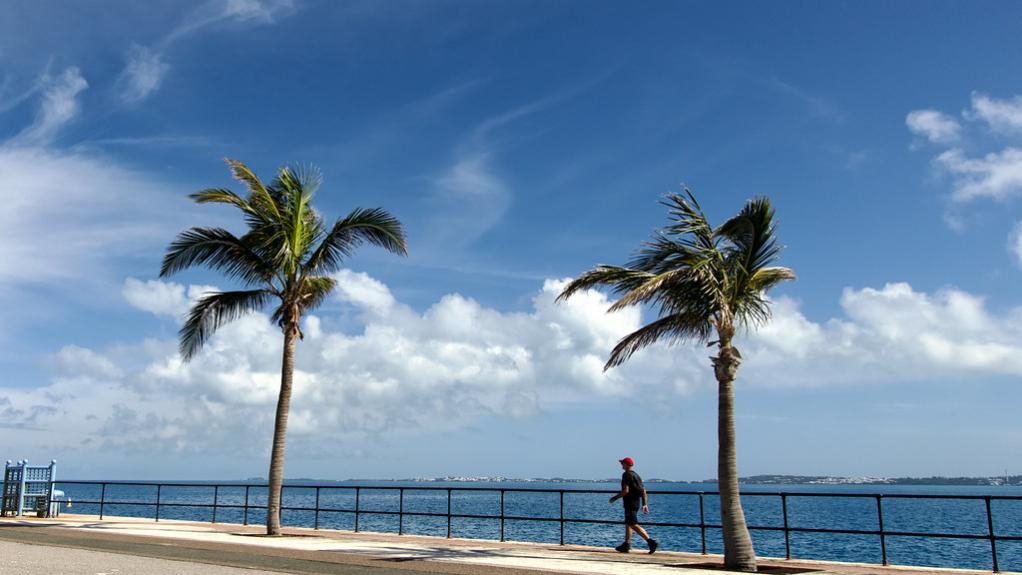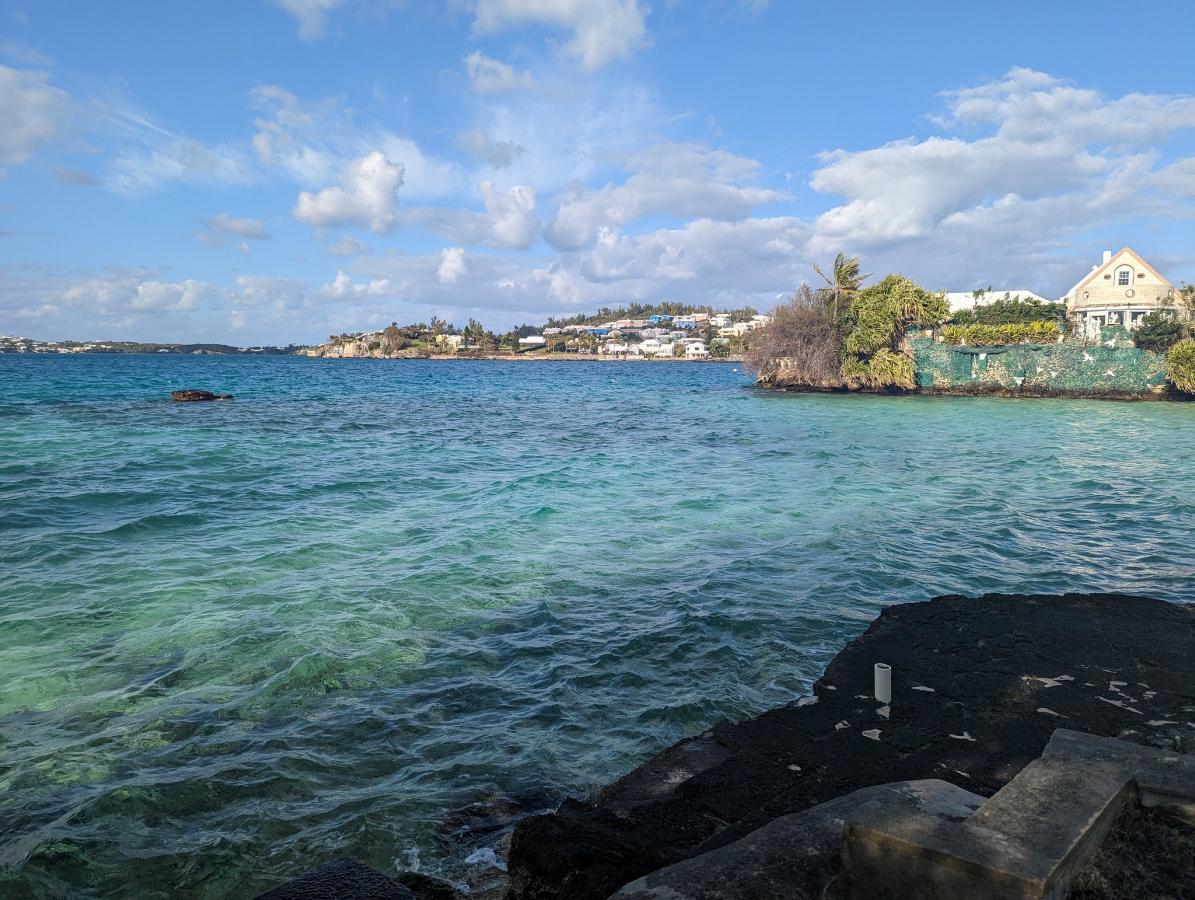Darrell, AB2E is currently active as VP9/AB2E from Bermuda Islands, IOTA NA - 005.
He will operate on 160 - 10m Bands, including activity in CQ WW DX CW Contest, 23 - 24 November 2024 as VP9I.
Recent DX Spots VP9/AB2E
QSL via home call direct, LOTW.
Bermuda - the territory of shipwrecks and vacation paradise
Bermuda is more than 180 reefs and islands of coral origin. They are located in the northwest Atlantic, almost 1,000 kilometers from the United States. Territorially Bermuda is under British jurisdiction. Only 20 islands are inhabited. Half of them are connected by bridges and are called Main Island. It is the main area for the local population. The population of the islands is about 65 thousand people. Most of them are descendants of black slaves - blacks and mulattoes.
 Bermuda Islands. Author - Christan Lontz.
Bermuda Islands. Author - Christan Lontz.
Bermuda Climate
The islands are ideal for leisure tourists. The climate is subtropical humid. Thanks to the Gulf Stream, which passes nearby, there is a warm weather with constant temperature. In the period from May to September it is within +25-26 ° C. During the season from December to March it is +17 ° C. In the winter there are strong winds from the northwest. They are accompanied by showers and cooling.
Precipitation can fall at any time. Rains are heavy, but of short duration. The hurricane season, which begins in June and lasts until November, is characterized by regular winds and occasional downpours.
Bermuda's flora and fauna
Before man came to the territory of the archipelago, all areas of land were covered with an endemic plant, the Bermuda juniper, and the coastal area was framed by picturesque mangroves. Most of these trees were cut down by human settlers and the unique ecosystem was destroyed. Today, measures are being taken to prevent the destruction of the endemic juniper and other flora.
At the moment, more than a third of the territory of the islands is occupied by bushes. They have densely "occupied" all the uplands. In the valleys grow a variety of cultivated plants.
The animal world of Bermuda was originally not rich. Previously, there were several species of invertebrates and lizards, as well as a unique bird - Bermuda Typhoonnik, which frightened off nearby sailors with its scary screams. Today, many species of local fauna are extinct or, like the Typhoon, endangered. People have brought pigs, rats, and other animals and vermin to the islands, which has had a negative impact on the local inhabitants.
 Bermuda Islands. Author - Rick McCharles.
Bermuda Islands. Author - Rick McCharles.
History of Bermuda
The islands were discovered by the Spaniards in 1503 and named after Juan Bermudez, who first stumbled upon the land. But the first settlement, a century later, was established here by the English. They were shipwrecked and forced to land on the island, which was named after Captain Somers. The colonists were actively engaged in agricultural activities, and in 1684 the islands were recognized as a territory of the British crown. The massive importation of slaves from the Black Continent stimulated the economic growth of this colony. Slavery was abolished only in 1838. In the late 19th and early 20th centuries, the island economy was reoriented to cater to the influx of tourists. Since 1931 the railroad began to work. Thanks to bridges it connected the islands and improved communication between the parts of the archipelago, but in 1948 it ceased to exist.
Today Bermuda is officially considered a British Overseas Territory. The chief official is the governor. Bermuda has internal self-government.
Economy and other features of the islands
The standard of living of local residents is high enough. Bermuda is a major global offshore center. Foreign enterprises operating on the islands are exempt from taxes. About 6 thousand companies from all over the world are registered on the islands.
The industrial sector employs up to 18 percent of the population. Here operate businesses that manufacture construction materials, pharmaceuticals, ship repair, manufacture of boats and ships.
Up to 60% of foreign exchange earnings, brings tourism. Visitors come to the islands from all continents, but most (about 90 percent) are U.S. citizens. On average, 600,000 tourists visit Bermuda each year.
Agriculture and fisheries are also actively developing. Potatoes, tomatoes, bananas, cabbage, and other crops are grown here. Many farms are engaged in floriculture to sell their plants to other countries.
Fishing, too, is common. The annual catch of commercial vessels is in the range of 800 tons.
The islands have no fresh water of their own. The only source of it is tropical downpours. There are no streams, lakes or rivers in the land areas, because the porous limestone instantly absorbs moisture. There are small ponds, not far from the sea, filled with brackish liquid. The water is processed by desalination plants, but this process is quite expensive.
Therefore, islanders have their own storage tanks on the roofs of their houses, which collect moisture in specialized tanks.
 Bermuda Islands. Author - kathryn.
Bermuda Islands. Author - kathryn.
Beach vacations in Bermuda
The islands are full of gorgeous beaches, picturesque lagoons and colorful reefs. Main Island, the main island of the archipelago, has a hilly coastline, rugged with numerous bays. Here you can take a break from the noise of big cities, enjoy the beautiful nature and swim in the clear azure sea.
The swimming season in Bermuda begins in May and ends in late September. The white sand on the beaches is also considered a local attraction. It looks unusual because of the pinkish tide. Bermuda's coastline is especially beautiful in the early morning and evening. During sunrise and sunset it looks especially picturesque.
There are many secluded coves with gorgeous beaches, ideal for a quiet holiday, especially in the south, where Jobson's Cove Bay and many others are located.
It's a great place for surfing, sailing and diving. For surfers, Warwick Long Bay is ideal. There are no reefs in this bay and you can always "catch" a wave.
Divers usually prefer to relax on Tobacco Bay and other similar sites. In the underwater world of the coastal zone there are not only colorful scenery, but also a large number of sunken ships, making diving, incredibly fascinating. Yachts can be taken on voyages around the coastal area, admiring the beauty that opens up.
Other attractions in Bermuda
The islands have an abundance of places of interest to every tourist. The Crystal Cave, near Bermuda's capital, Hamilton, is especially famous in the world. It was discovered by children, during their games, in the early 20th century. There are clean, picturesque lakes with translucent bottoms, over which the pointed stalagmites overhang.
Many tourists visit the famous fort in the capital. It was built in the 19th century on a hilltop. Here you can see the magnificent gardens inside, as well as admire the magnificent panorama of the harbor and the surrounding Hamilton area.
Victoria Park also attracts foreigners. It was dedicated to the British queen who ruled the country in the 19th century. It is one of the most beautiful places on the islands because of the exotic plants. There are also various festivals and music festivals.
Some vacationers visit Blue Hole. This is a large reserve full of unusual birds. On its territory is the famous Blue Grotto, which descends into the depths of the sea.
Fauna lovers can visit Flutts Village. Here is a zoo with rare animals and the original aquarium, completely copying the reef nearby. There are about two hundred species of unusual fish and 50 animals living in the sea waters.
All these and many other attractions are available to every tourist who sets foot on the land of Bermuda.

